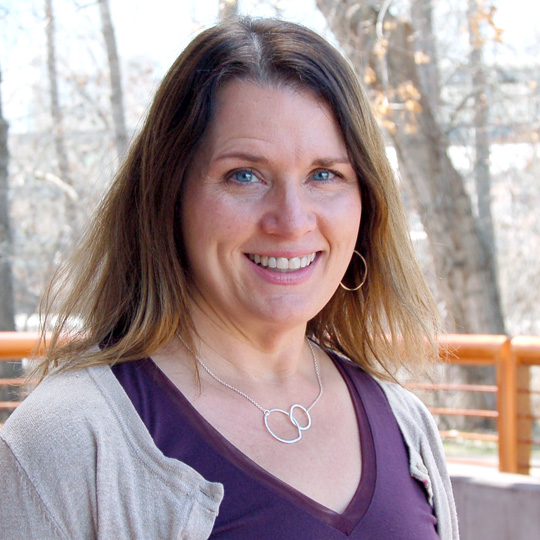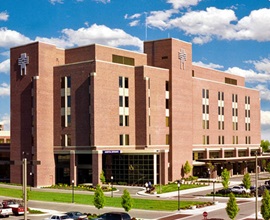NNU Student’s Cardiac Arrest Demonstrates Value of CPR Training

Andrew Holston doesn’t remember Jan. 16, 2016, but those who were with him will never forget that day.
Holston, 19, was attending church with his parents and other family members. It was the Sunday before the start of a new semester at Northwest Nazarene University, where Holston is a sophomore. His parents had traveled from Enumclaw, Washington, to bring him back to school and planned to return home later that afternoon.
“Andrew doesn’t know his story, so he isn’t aware of the difference it made in our lives,” said his mother, Cindy Holston.
Until Andrew Holston collapsed, the only thing unusual about that day was that he had decided to sit with his parents instead of his friends when they all went to church together. Cindy Holston figured it was because school hadn’t started yet and most of his friends hadn’t returned from the winter break. Later she realized it was fortunate.
“I watched him fold over in front of me,” Cindy Holston said.
Several rows ahead, Teresa Smith, a registered nurse and St. Luke’s Treasure Valley Stroke Program manager, turned around when she heard abnormal breathing. Smith saw people gathering around someone, and when she got closer she realized someone had collapsed. Like others, including Holston’s family, Smith initially thought he had fainted.
But moments later, after Smith had checked Holston’s pulse and a group moved him into another room, the teen’s heart stopped beating.
A group of people began performing cardiopulmonary resuscitation (CPR), while Smith prepared the automated external defibrillator (AED). Dr. Fred Fender, a physician at Saint Alphonsus Regional Medical Center, began CPR and Smith placed the AED pads on Holston. Christy Altman, a Women’s Unit nurse at St. Luke’s Boise, ran to her car to get a “pocket mask” to help provide ventilations.
Personnel from Meridian Fire and Ada County Paramedics soon arrived, took over resuscitation efforts and transported Holston to St. Luke’s Meridian. It was Dr. Heather Crane, who works in the St. Luke’s Meridian emergency department, who got his heart to beat again 40 minutes after he collapsed.

“The thing that amazed me the most was the level of calmness and how well we worked together,” Smith said. “It was incredible teamwork.”
At St. Luke’s Meridian, critical care, pulmonology, and cardiology teams induced “therapeutic hypothermia” to preserve Holston’s brain function. His core body temperature was deliberately reduced, slowing his metabolism to reduce cell damage from lack of oxygen and allowing his brain to gradually return to normal.
Once he was stable, and able to speak and breathe on his own, Holston underwent repeated testing, including a cardiac MRI. Dr. Josh Mozes, a specialized cardiologist known as an electrophysiologist, implanted a device called an implantable cardioverter defibrillator (ICD) under Holston’s skin. The ICD tracks Holston’s heart rate and will deliver an electric shock to get his heart back into rhythm, if needed.
“Andrew’s cardiac function is normalized and he’s had a full neurological recovery,” said Dr. Brian Nolan, a St. Luke’s cardiologist who helped care for Holston. “He had an excellent outcome because people all along the way did the right things, from those who started chest compressions at the church to the paramedics and the hospital staff. They saved him from what would have been a catastrophic loss of brain function.”
Dr. Fender has attended the church since 1984 and doesn’t remember another event like the one Holston experienced in January. The congregation of about 500 people is fortunate to have a few members with healthcare experience. But Dr. Fender believes no one should rely on chance when it comes to lifesaving techniques.
“Not everyone can have an AED, but at least know who to call and know the basics of CPR,” said Dr. Fender. “Hands-on CPR is good for everyone to be able to do. You don’t absolutely have to give someone respirations to give CPR.”
Smith was a member of the church’s safety committee three years ago and suggested they acquire two AEDs. She also helped ensure that people within the building knew how to use the devices and offered training sessions.
Dr. Fender believes anyone who gathers in a large group on a regular basis should have some type of action plan. This includes knowing who to call, identifying anyone who has experience in health care and having basic first aid equipment. According to national statistics, of the 300,000 to 400,000 Americans who die of cardiac arrest each year, 25 percent could be saved with the use of CPR/AEDs.
“This has spurred us on,” said church administrator Gary Seaton. “The way it happened, the timing was perfect because there were people there who knew what to do. But if that had happened in a different setting, no one would have known what to do.”
A teacher who is a member of the congregation and was at church that day told Andrew Holston she plans to have her students take first aid training. The church has increased its first aid supplies, acquiring a patient transfer board and a respiration mask. Smith said there is interest in offering additional AED and CPR training sessions at the church.
“It definitely made me more aware of training,” Holston said. “It reminds me how much it should be taught universally and very much solidified my interest in entering the field of medicine.”
Doctors still aren’t sure what caused Holston’s cardiac arrest. For now, he continues to recover at home in Washington until he returns to NNU in the fall. He is currently a biology major, and now he is interested in pre-medicine as his focus of study.
“You just don’t know the impact it will have,” Cindy Holston said. “It’s like the rock in the lake. The ripples go out and you don’t know how it will touch people.”
About The Author

Chereen Langrill was formerly a communications coordinator for St. Luke’s Health System.


